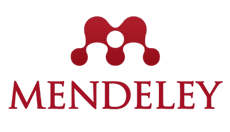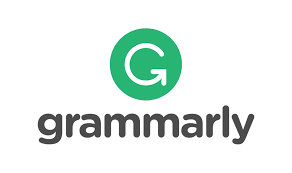Pengaruh Kondisi dan Minat Belajar Siswa Masa Pandemi Covid-19 terhadap Hasil Belajar Matematika
DOI:
https://doi.org/10.57176/jn.v1i2.27Keywords:
kondisi belajar, minat belajar, hasil belajar matematikaAbstract
Penelitian ini bertujuan untuk mengetahui pengaruh kondisi dan minat belajar siswa masa pandemi covid-19 terhadap hasil belajar matematika. Jenis penelitian yang digunakan adalah penelitian kuantitatif dengan populasi seluruh siswa kelas VIII SMP Negeri 10 Pekalongan. Teknik dalam pengambilan sampling adalah teknik probability sampling tipe cluster random sampling. Sampel yang digunakan yaitu siswa kelas VIII-A yang berjumlah 31 siswa. Teknik pengumpulan data pada penelitian ini adalah angket dan tes. Analisis data dilakukan dengan uji prasyarat yang terdiri dari uji normalitas, uji linearitas, dan uji asumsi klasik yang meliputui uji multikolinearitas, uji autokorelasi, dan uji heteroskedastisitas. Setelah dilakukan uji prasyarat, selanjutnya dilakukan uji hipotesis dengan analisis regresi berganda. Berdasarkan hasil analisis yang diperoleh (1) Terdapat pengaruh yang signifikan antara kondisi belajar terhadap hasil belajar matematika dengan pengaruh sebesar 33,3%. (2) Terdapat pengaruh yang signifikan antara minat belajar terhadap hasil belajar matematika dengan pengaruh sebesar 38,9%. (3) Terdapat pengaruh yang signifikan antara kondisi dan minat belajar siswa masa pandemi covid-19 terhadap hasil belajar matematika siswa kelas VIII SMP Negeri 10 Pekalongan. Hal ini ditunjukkan dengan uji – F yaitu atau 10,54 > 3,34. Koefisien korelasi ganda (R) sebesar 0,655 dan koefisien determinasi (R2) sebesar 0,430. Besar sumbangan relatif sebesar X1 38,64% dan X2 sebesar 61,18% serta sumbangan efektif X1 sebesar 16,62% dan X2 sebesar 26,31%.
This study aimed to determine the effect of students’ learning conditions and interests during the Covid-19 pandemic on mathematics learning outcomes. The type of research used was quantitative research with a population of all eighth-grade students of SMP Negeri 10 Pekalongan. The sampling technique used was a probability sampling technique of cluster random sampling type. The sample used was class VIII-A, totaling 31 students. Data collection techniques in this study were questionnaires and tests. Data analysis was carried out with prerequisite tests consisting of normality test, linearity test, and classical assumption test which included multicollinearity test, autocorrelation test, and heteroscedasticity test. After the prerequisite test was done, then the hypothesis test was carried out with multiple regression analysis. Based on the results of the analysis obtained (1) There was a significant influence between learning conditions on learning outcomes in mathematics with an effect of 33.3%. (2) There was a significant influence between learning interest on mathematics learning outcomes with an effect of 38.9%. (3) There was a significant influence between the conditions and learning interests of students during the COVID-19 pandemic on the mathematics learning outcomes of class VIII students of SMP Negeri 10 Pekalongan. This was indicated by the -F test, namely F_count>F_table or 10.54> 3.34. The multiple correlation coefficient (R) was 0.655 and the coefficient of determination (R2) is 0.430. The relative contribution of X1 was 38.64% and X2 is 61.18% and the effective contribution of X1 was 16.62% and X2 is 26.31%.
References
Gunawan, A.W. (2006). Genius Learning Strategy. Gramedia Pustaka Utama: Jakarta.
Hariri, H., Karwan, D.H., Haenilah, E.Y., Rini, R., & Suparman, U. (2021). Motivation and learning strategies: Student motivation affects student learning strategies. European Journal of Educational Research. 10 (1), 39-49. DOI: https://doi.org/10.12973/eu-jer.10.1.39
Juliani, R., & F. Meliana. (2014). Pengaruh Strategi Genius Learning Terhadap Hasil Belajar Siswa Pada Materi Fisika Topik Listrik Dinamis Kelas IX SMP Swasta Raksana Medan. Jurnal Pendidikan Fisika. 3 (1), Juni 2014, 34-40. DOI: https://doi.org/10.22611/jpf.v3i1.3274
Junaeti, E, H. Sutarno, & R.R. Nurmalasari. (2018). Genius Learning Strategy of Basic Programming in an Adventure Game. The 2nd Annual Applied Science and Engineering Conference (AASEC 2017). IOP Conference Series: Materials Science and Engineering 288 (2018) 012057. DOI: 10.1088/1757-899X/288/1/012057
Muhibbin. (2008). Psikologi Pendidikan. Bandung: PT Remaja Rosdakarya.
Nurhayati. (2014). Pengaruh Strategi Genius Learning Melalui Model Pembelajaran ARIAS (Assurance, Relevance, Interest, Assesmen and Satisfaction) Terhadap Hasil Belajar Siswa. Jurnal Nalar Pendidikan. 2 (1), 18-24.
Patria, B., A.D. Yusandika, & H. Wulandary. (2021). Pengaruh Penerapan Strategi Genius Learning terhadap Kemampuan Berpikir Kreatif Peserta Didik Kelas X IPA SMA. U-Teach: Journal Education of Young Physics Teacher. 1 (2), 57-65. DOI: https://doi.org/10.30599/uteach.v1i2.30
Prayoga, S.T., Suratno, & Sulifah, A. H. (2015). Penerapan Model Pembelajaran Genius Learning dengan Metode Eksperimen dalam Meningkatkan Aktivitas dan Hasil Belajar IPA Biologi. Jurnal Edukasi. II (3), 1-4. DOI: https://doi.org/10.19184/jukasi.v2i3.4321
Republik Indonesia. 2003. Undang-Undang Sistem Pendidikan Nasional No.20 tentang Sistem Pendidikan Nasional. Jakarta: Depdiknas.
Roza, M., & M. Ulandari. (2016). Penerapan Strategi Genius Learning Pada Pembelajaran IPA Di Kelas IV Sekolah Dasar Negeri 21 Lubuk Lintah Padang. Jurnal Tarbiyah Al-Awlad. 7 (2), 570-579.
Sanjaya, W. (2008). Strategi Pembelajaran. Jakarta: Kencana Prenada Media Group.
Setiani, R. (2014) Penggunaan Strategi Genius Learning Untuk Meningkatkan Keaktifan Belajar Matematika Siswa Kelas VB SD Muhammadiyah 2 Kauman Surakarta Tahun Ajaran 2013 2014. Skripsi thesis, Universitas Muhammadiyah Surakarta.
Sirait, G., E. Djulia, & S. Sinaga. (2019). Pengaruh Genius Learning Strategy Terhadap Kemampuan Berpikir Tingkat Tinggi Pada Materi Sistem Pernapasan Manusia. Jurnal Pelita Pendidikan. 7(4), 191-196. DOI: https://doi.org/10.24114/jpp.v7i4.15264
Suprijono, A. (2009). Cooperative Learning. Yogyakarta: Pustaka Pelajar.
Slavin, R. (2008). Cooperative Learning Terjemahan. Bandung: Nusa Media.
Downloads
Published
How to Cite
Issue
Section
License
Copyright (c) 2022 Siska Yustitia Dewi, Nurina Hidayah

This work is licensed under a Creative Commons Attribution-ShareAlike 4.0 International License.
You are free to:
- Share — copy and redistribute the material in any medium or format for any purpose, even commercially.
- Adapt — remix, transform, and build upon the material for any purpose, even commercially.
- The licensor cannot revoke these freedoms as long as you follow the license terms.
Under the following terms:
- Attribution — You must give appropriate credit , provide a link to the license, and indicate if changes were made . You may do so in any reasonable manner, but not in any way that suggests the licensor endorses you or your use.
- ShareAlike — If you remix, transform, or build upon the material, you must distribute your contributions under the same license as the original.
- No additional restrictions — You may not apply legal terms or technological measures that legally restrict others from doing anything the license permits.
Notices:
You do not have to comply with the license for elements of the material in the public domain or where your use is permitted by an applicable exception or limitation .
No warranties are given. The license may not give you all of the permissions necessary for your intended use. For example, other rights such as publicity, privacy, or moral rights may limit how you use the material.
















